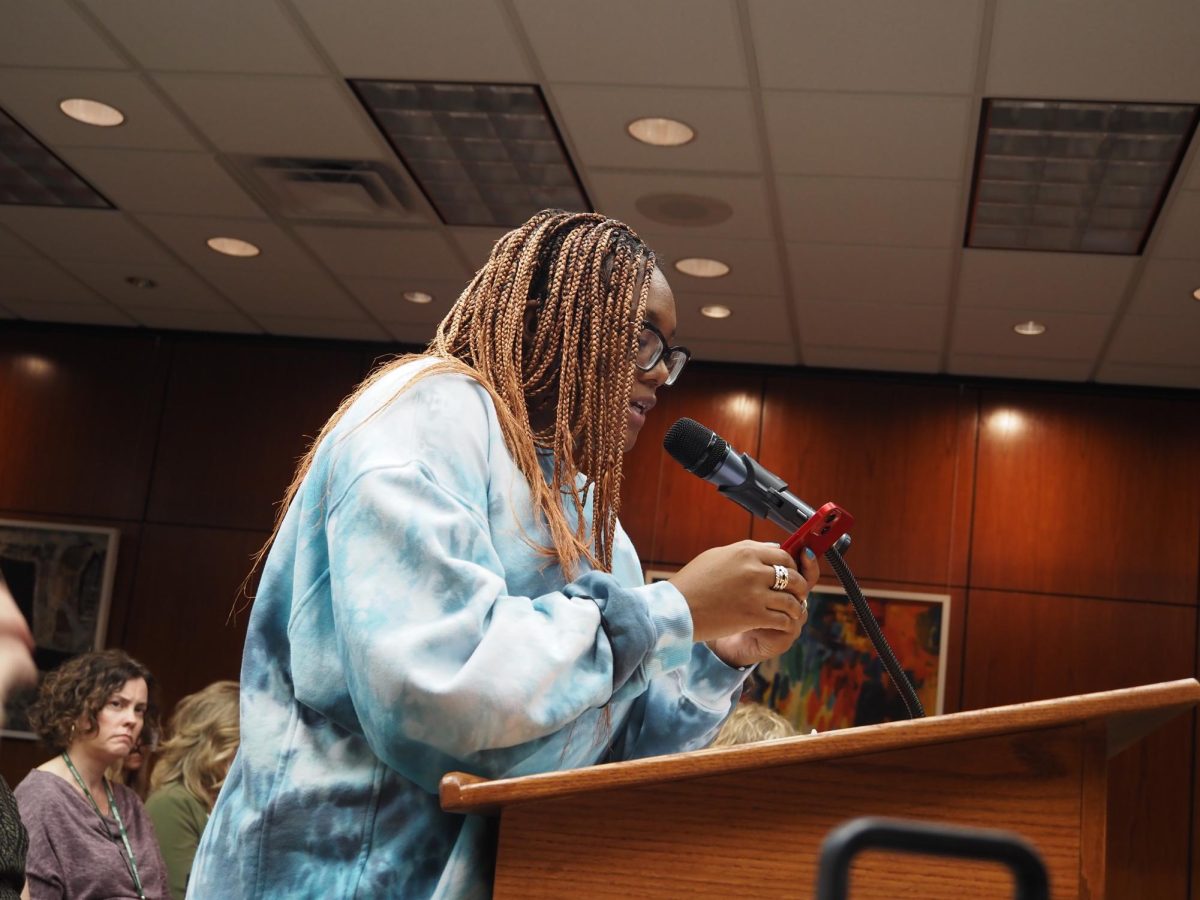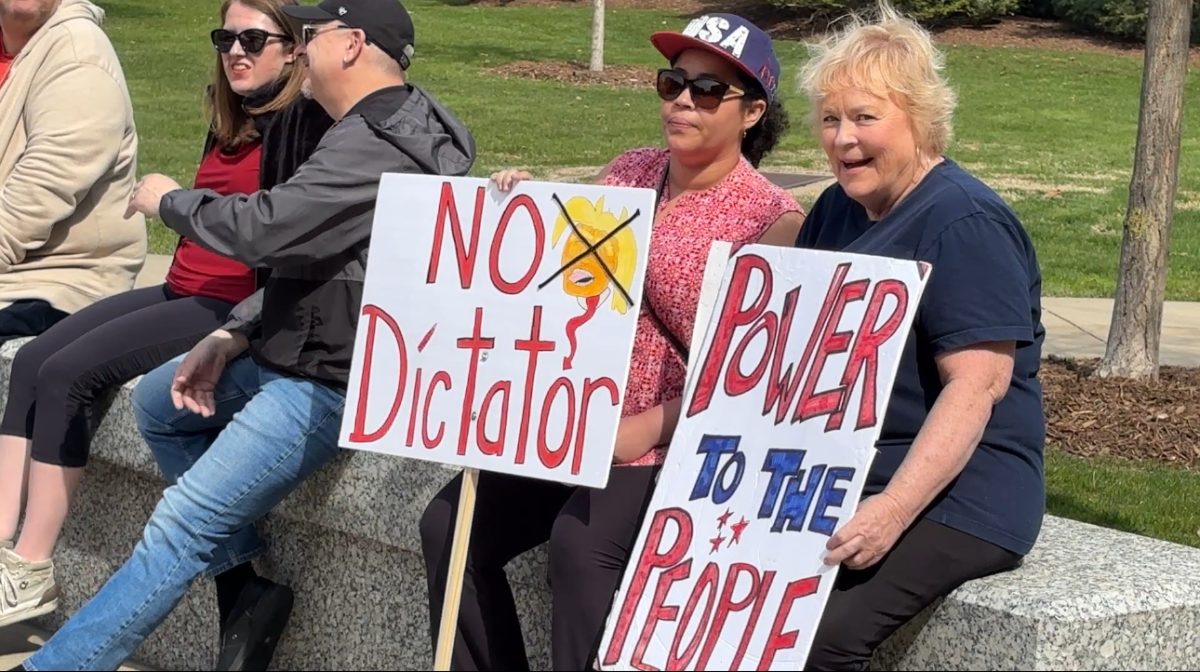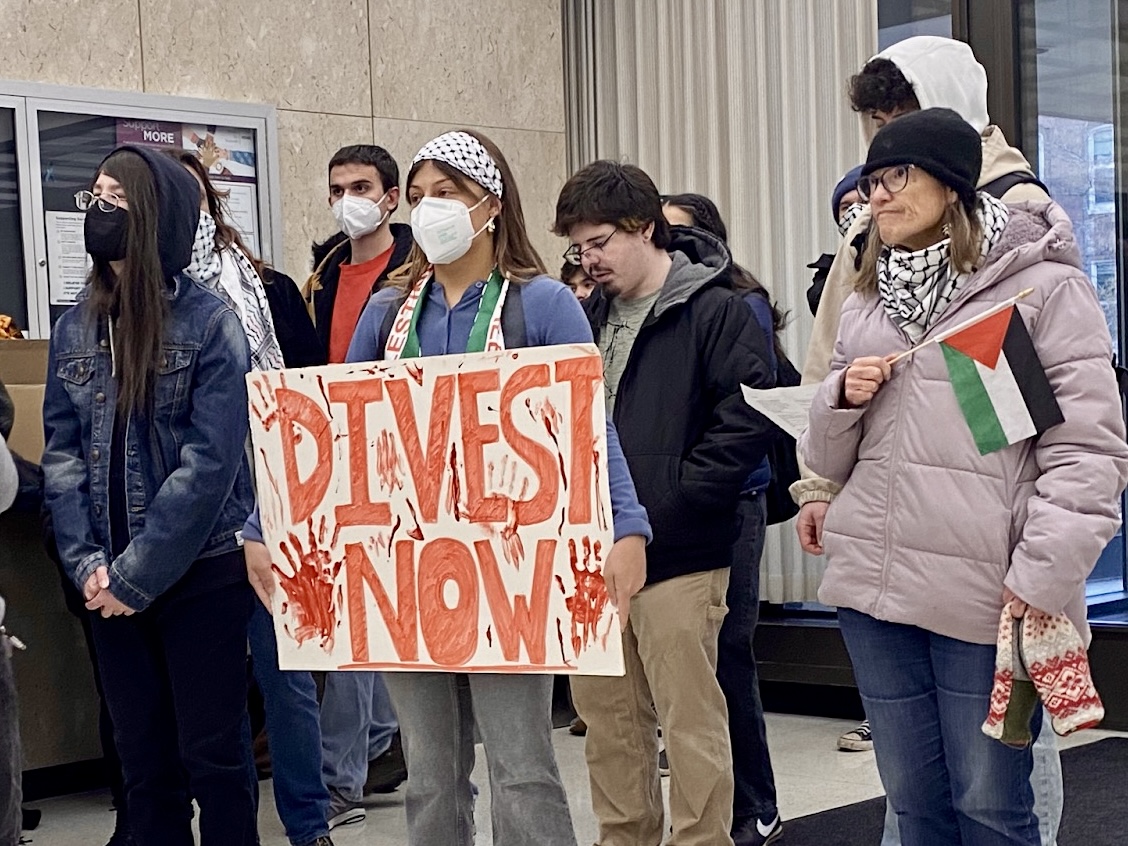EAST LANSING – As Michigan State University students return to campus, they are reminded of the college’s most pressing tragedies— the Feb. 13 mass shooting that claimed the lives of three students and disgraced MSU sports doctor Larry Nassar’s abuse of more than 500 women.
These heavy feelings were addressed at the MSU Board of Trustees meeting on Sept. 8 as community members enacted major changes. One of these changes enacted by the board was the passing of an amendment to Ordinance 18:00 on firearms and weapons.
This change makes it so that those licensed to openly or concealed carry firearms by the State of Michigan will now be in violation of the ordinance, enforceable by police forces and the county prosecutor.
Interim President Teresa Woodruff said, “Today we close a loophole so that members of the community cannot carry a concealed weapon on our green spaces.”
This loophole was an exception in the original Ordinance 18.00 that allowed cases of possession and use of firearms that were “permitted by state law regulating firearms.”
The vote to amend was split 5-2, without a vote from Trustee Dennis Denno who was absent due to illness.
Objections to the amendment came from board chair Rema Vassar and vice-chair Dan Kelly.
“This board’s giving an extraordinary authority to actually pass criminal laws,” said Kelly. “This is actually putting people in jail.”
Kelly objected to the amendment requiring police officers to make subjective decisions about who is suspected of breaking the law.
“There’s going to be people that will not be arrested and people that will be arrested and it won’t be based upon this language. It will be based upon whether or not the police officer believes they’re suspicious,” said Kelly.
This launched a discourse about how implicit biases may affect police officer decisions. During the conversation, MSU Vice President for Police and Public Safety Marlon Lynch addressed these concerns.
Lynch claimed officers complete implicit bias training, which offsets discriminatory behavior, explaining that “officer discretion” is an inevitable part of law enforcement.
“These are tough decisions,” Lynch said. “Our officers do that on a daily basis and they do a very good job of doing it.”
Vassar was skeptical and said that while she wanted to vote yes to help students feel safe, her concern was that minority groups on campus were going to be overpoliced.
“There have been times when my experiences with police officers have not been safe, not on this campus, but outside of this campus,” Vassar said. “We do know that we have certain populations that are policed in different ways.”
The board also heard from the sister survivors of Nassar’s abuse as they expressed their frustration with continued lack of transparency following the investigation and served each trustee member a copy of a lawsuit they filed earlier last month.
The lawsuit was filed in July by a group of sister survivors and Parents of Sister Survivors Engage. Their lawsuit addresses the grievance that the board has still not released over 6,000 documents related to Nassar.
Previous denials of access to the documents under then-chair Dianne Byrum were due to the school being in legal disputes with insurers, most notably United Educators, which had once been the university’s biggest insurer. The insurance dispute had been related to the $500 million settlement survivors received in 2018.
Sister Survivor Melissa Hudecz said, “I stand here today as a sister survivor to address the past and current board chairs on behalf of the 546 known victims of the man that you employed here for two decades.”
“You said that there’s nothing to see in the 6,000 documents that you fought so hard to keep hidden. Yet, how can we believe you when we know your track record on the truth,” Hudecz said.
Hudecz addressed Vassar directly, calling her out for not fulfilling a campaign promise to grant access to the documents.
“Rema Vassar, we had high hopes that a new chair would finally bring about change,” Hudecz said. “You promised during your campaign, ‘All documents should be made public to promote healing, to repair the reputation of this institution.’”
“I ask you to make a motion now, before this meeting adjourns, to repair the reputation of this institution, by having an open, public vote on whether to release the documents to the Attorney General’s Office for a complete investigation,” Hudecz said.
Vassar revealed to reporters at the end of the meeting that the insurance disputes had since been resolved but declined to comment further.
More sister survivors echoed these frustrations and criticized the board for an alleged secret decision not to publicly vote on the release of the documents.
Sister Survivor Jennifer Hayes said, “MSU still isn’t being honest. You can’t be honest when you hide more than 6,000 documents and then make a secret decision that you won’t publicly take a vote on whether to release them.”
The sister survivors ended their speeches with a single phrase: “Only the truth heals.”
Listen here to hear the sister survivors serve the lawsuit.
In response to the survivors, Vassar said, “I’m doing my best, I hear you, and I’m doing my best.”
As MSU community members continue to push for changes, the board will have to do its best to aid in healing from both of these traumas.

















